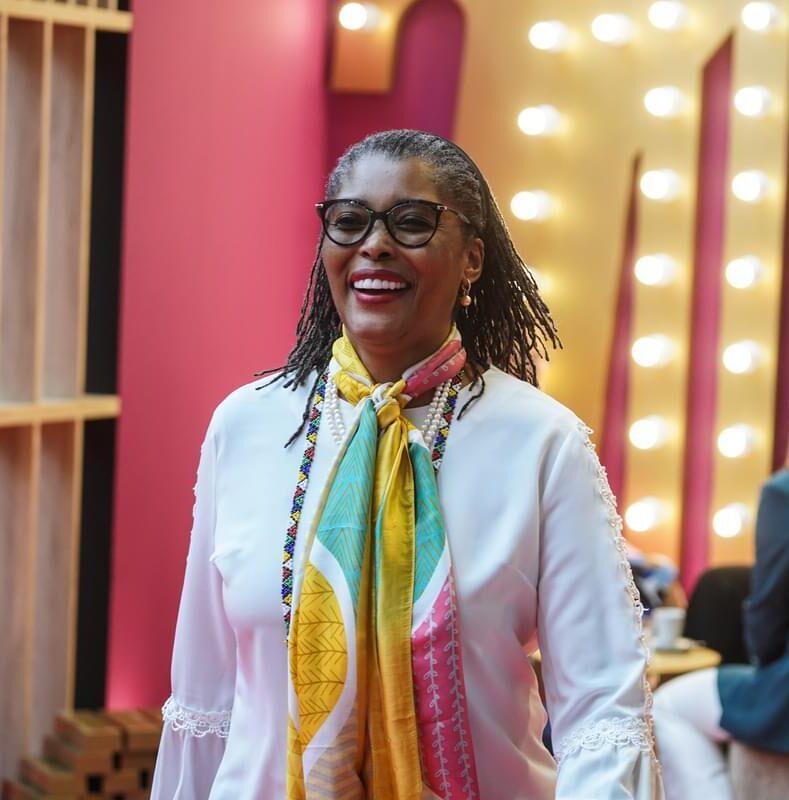What does it mean to be an inclusive leader? We reflect on some of the themes recognized by Melissa Majors, CEO of Melissa Majors Consulting, as the top seven habits of truly inclusive leaders.
The seven habits of inclusive leadership:
- Adopt inclusive business practices across all area
- Demonstrate empathy
- Encourage collaboration
- An inclusive mindset
- Hold EDI-centric values
- Inclusive decision making
- Inspire transformation
Leadership skills for events industry professionals
1. They see inclusion as business imperative
Research from McKinsey & Company found that inclusive organisations are on average 40% more profitable than non-inclusive, and this is down to the fact that if you have differing perspectives on a subject, there is increased scope for innovation, which in turn allows for the development of new products and services.
Many organisations hire new candidates based on whether they will fit in with an existing team, however, research from the NeuroLeadership Institute indicates that homogenous teams are generally less innovative than more diverse teams. Therefore, purposefully hiring for difference, opposed to familiarity, is a key attribute of inclusive leaders.
2. They demonstrate empathy
The more familiar something is to us, the less likely we are to view it as a threat. When this translates to the workplace, we may struggle to empathise with someone we see as being dissimilar to ourselves, as the perception viewpoints may be very different. An inclusive leader will actively empathise and listen to all, even if they disagree, so to better understand an individual’s standpoint and reasoning.

3. They encourage collaboration
Research from the NeuroLeadership Institute found that on average, women are interrupted six times more often than men (by both men and other women) and it causes vital perspectives and ideas to be missed. Inclusive leaders ensure that all viewpoints are equally voiced and represented.
On a similar vein, one of the pioneering researchers in this field, Dr Janis Irving, identified the concept of Groupthink, where an individual’s social belonging will outweigh their rational logic. In a workspace setting it may cause people to go along and agree with something, or someone, so that they can stay in the good graces of those in power.
Truly inclusive leaders mitigate Groupthink by ensuing that people’s voices are heard and that they are empowered to showcase their opinions, even if they may go against those in positions of higher authority.
Ready to level up your leadership skills? Join us at IMEX
4. They have an inclusive mindset
Inclusive leaders will understand that they themselves don’t have all the answers; togetherness is better than one on their own. That is why inclusive leaders will continually ask questions and will be curious to hear other people’s thoughts and ideas.
They will also be aware that every person will have bias in their lives – this will have been created by patterns of threat that the brain has remembered and will have been shaped via all the touchpoints in an individual’s life. An inclusive leader will try to prevent bias shaping people’s opinions of others, by getting them to examine their own thoughts and identify their own bias so steps can be put in place to overcome this.
5. They hold values that reflect diversity, inclusion, belonging and equity
A workplace or team’s day-to-day behaviour will be guided by a leader’s expectation and similarly the values they choose to uphold. Those leaders that hire to diversify an organisation’s culture, encourage everyone to voice their opinion and have a vote on decisions and treats people how they need to be treated, will be not only be making a positive impact on a current workspace, but will be bestowing these principles to the leaders of tomorrow, who will be more likely to take them forward into their own careers and organisations.

6. They display inclusive decision making
Referring to the idea of Groupthink, inclusive leaders will understand that there will be certain people in an organisation whose opinion and voice carries weight. This can lead to people agreeing to an idea, so to stay in favour with certain individuals, rather than properly voicing their own thoughts. By allowing those who are less dominant to speak first, you can often gage more truthful opinions that have not been previously swayed.
7. They will inspire transformation
Conflict is healthy but uncomfortable, and many people will disengage when things become too difficult for them. However, great innovation can come from moving out of one’s comfort zone and exploring new possibilities.
For example, many people will socialise with people like themselves, but this means you are missing out on other outlooks. By striving to grow your social circle with those who are not like you, you can begin to see new viewpoints. Inclusive leaders will encourage those around them to open up their world so to allow for a fresh take on what they thought they knew.





